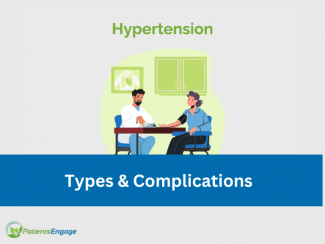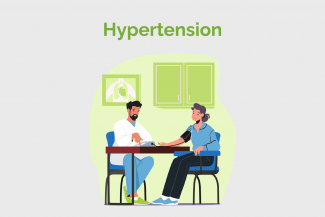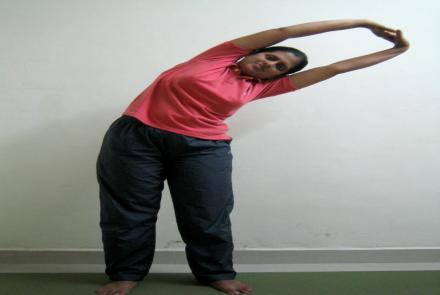
Major types of hypertension (high blood pressure)
Primary hypertension, also known as essential hypertension, is the most common type of hypertension. For this type of hypertension, there is no single identifiable cause. There is no apparent underlying disease, condition or disorder causing the high blood pressure. Instead, hypertension occurs because of genes, diet and lifestyle.
Secondary hypertension is a less common form of the disease that occurs because of a specific condition. Disorders including sleep apnea, tumours and kidney failure can all cause hypertension to occur as a side effect.
Minor types of hypertension (high blood pressure):
These are less common types of hypertension:
Malignant hypertension is high blood pressure that occurs suddenly and drastically. A person might experience numbness in the body as well as vision problems, extreme fatigue, confusion, anxiety and seizures. There are various diseases which may cause this condition, including scleroderma, kidney disease, spinal cord injuries, tumour of adrenal gland, use of illegal drugs like cocaine, and the use of certain medications like birth control pills. When the underlying condition is cured, the blood pressure goes back to normal
Isolated systolic hypertension does not have an identifiable cause. This type of hypertension is a result of old age and a poor diet. The arteries become stiff, resulting in a high systolic number with a normal diastolic number.
White coat hypertension occurs only when a person’s blood pressure is taken in a clinical setting. Outside of a doctor's office, blood pressure is normal. It is believed that these patients feel extremely stressed when they visit a clinic or doctor's office.
Resistant hypertension is called such when three medications fail to successfully treat the condition.
Complications of hypertension
High blood pressure is dangerous because it makes the heart work too hard. It also makes the walls of the arteries hard. High blood pressure increases the risk of heart disease and heart failure, stroke, kidney disease and blindness.
Hardening of the arteries: As people get older, arteries throughout the body harden, especially those in the heart, brain and kidneys. High blood pressure is associated with these "stiffer" arteries. This, in turn, causes the heart and kidneys to work harder. The hardening of the arteries can lead to heart attack, stroke or other complications.
Stroke: A stroke is said to have occurred when brain cells die because of a lack of oxygen. High blood pressure is the most important risk factor for stroke as it damages arteries making them more prone to breaking or clogging. You may suffer a stroke if a blood vessel ruptures (breaks) in the brain or a blood clot blocks one of the narrowed arteries, cutting off blood supply to a part of the brain
Read more on Symptoms, Tests, Management of Stroke
Impaired vision: High blood pressure can eventually cause blood vessels in the eye to burst or bleed. Vision may become blurred or otherwise impaired and can result in blindness.
Kidney damage: The kidneys act as filters to rid the body of waste. Over time, high blood pressure can narrow and thicken the blood vessels of the kidneys. The kidneys are able to filter less fluid, and waste builds up in the blood. Over time, the kidneys may fail altogether. When this happens, medical treatment (dialysis) or a kidney transplant may be needed.
Learn more about Chronic Kidney Disease
Heart attack: High blood pressure is a major risk factor for heart attack. The arteries bring oxygen-carrying blood to the heart muscle. High blood pressure causes the build-up of plaque in the arteries, narrowing and hardening them. If the heart cannot get enough oxygen-rich blood, chest pain, also known as "angina", can occur. If plaque or a blood clot in the arteries blocks the flow of blood to a part of the heart, a heart attack results.
Read more about different types of Heart Diseases.
Congestive heart failure: High blood pressure is the number one risk factor for congestive heart failure (CHF). Increased blood pressure causes the heart muscle to grow weaker over time. CHF is a serious condition in which the heart is unable to pump enough blood to supply the body's needs.










